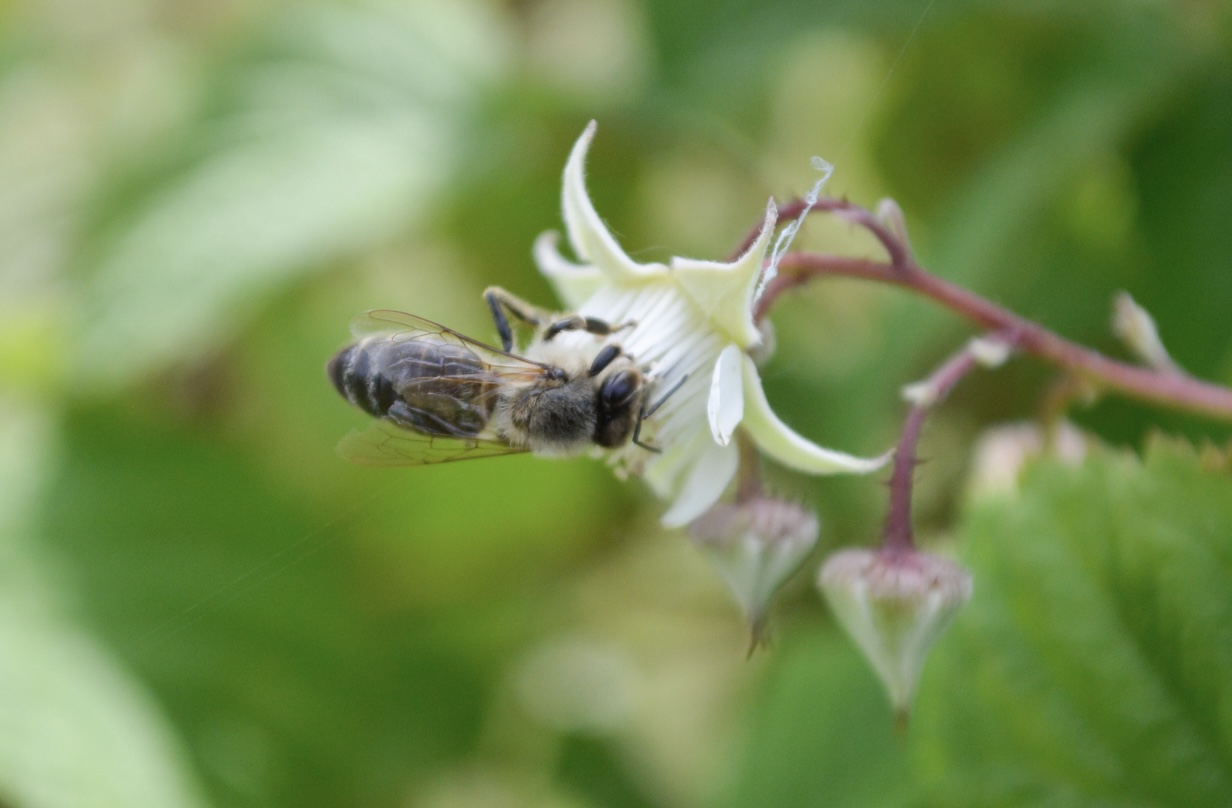
Following up from our previous topic, we’re shifting gears to caneberry pollination in the Pacific Northwest. While caneberry pollination is not usually a concern as blooms have plenty of nectar and pollen is easily accessible making them more pollinator friendly, this PolliNation podcast piece is worth some discussion. The featured speaker, Jim Cane, is a recently retired native bee and pollination ecologist who has spent plenty of time in the Pacific Northwest doing field surveys and recalls seeing caneberry fields with an overabundance of honeybees.
This podcast has some great discussion on how to evaluate the adequate number of bees for caneberry crops based on data collected in recent years. Based off red raspberry fruit set and blooms per acre, if a grower sees one honeybee (or other native pollinator) per five feet of planted row then they can consider that adequate pollination of that crop while allowing the native populations to build up their reserves in the field at the same time.
Considering many growers bring in hives to first pollinate blueberries or other early season crops and leave them there through raspberry and blackberry bloom, it’s difficult to change hive needs in between crops. Additionally, each farm situation is different. However, it’s a worthy and directly applicable discussion point which is easier to digest on years when constant rain isn’t hindering the pollination window. That being said, native pollinator populations are better able to efficiently pollinate during these inadequate weather windows so maybe we should think of this additional way to start increasing their populations?
Do you think this is feasible on multi-crop farms? Would the beekeepers have healthier hives if there were less hives there to compete for the nectar and pollen anyway?
Chime in on this forum discussion now.
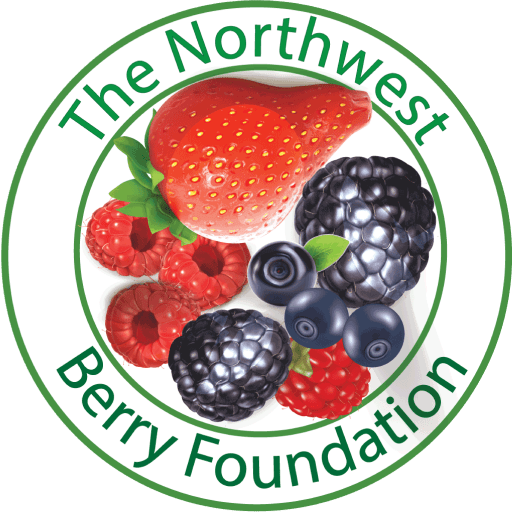
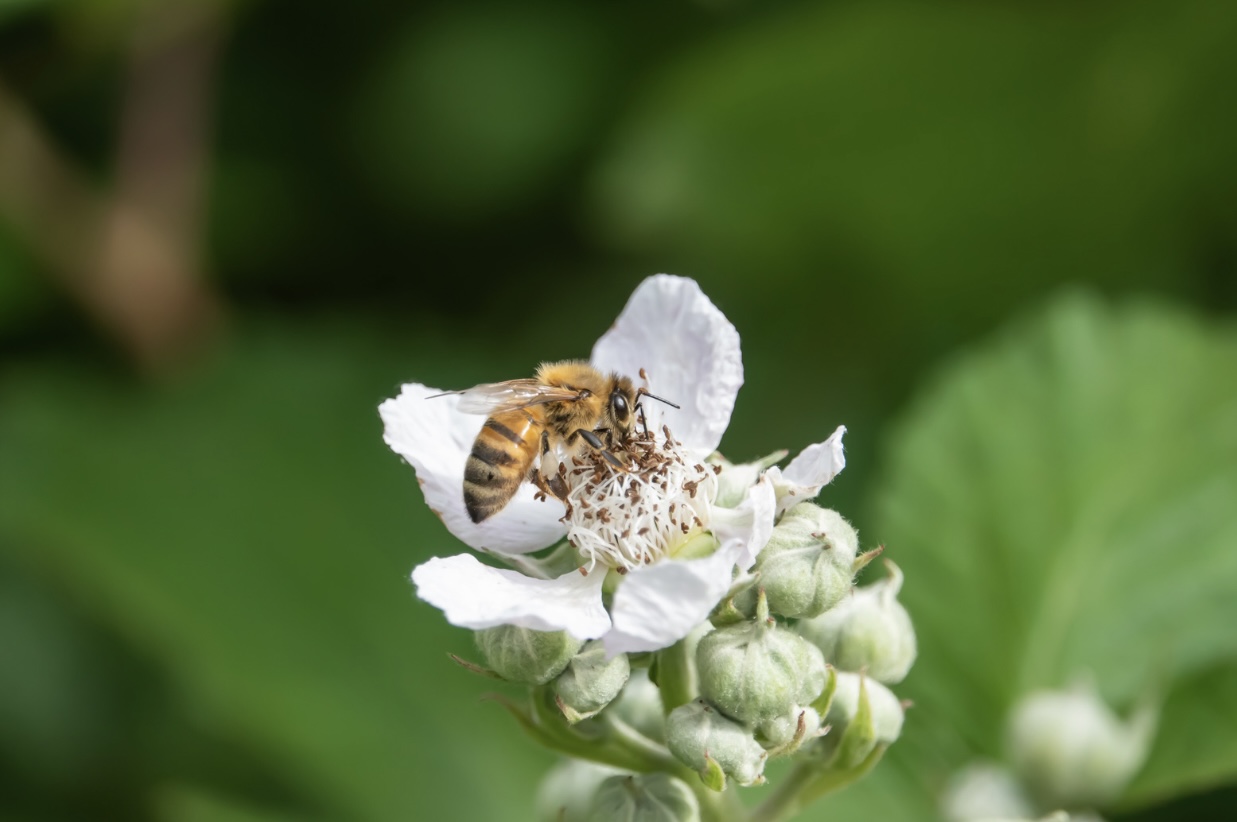
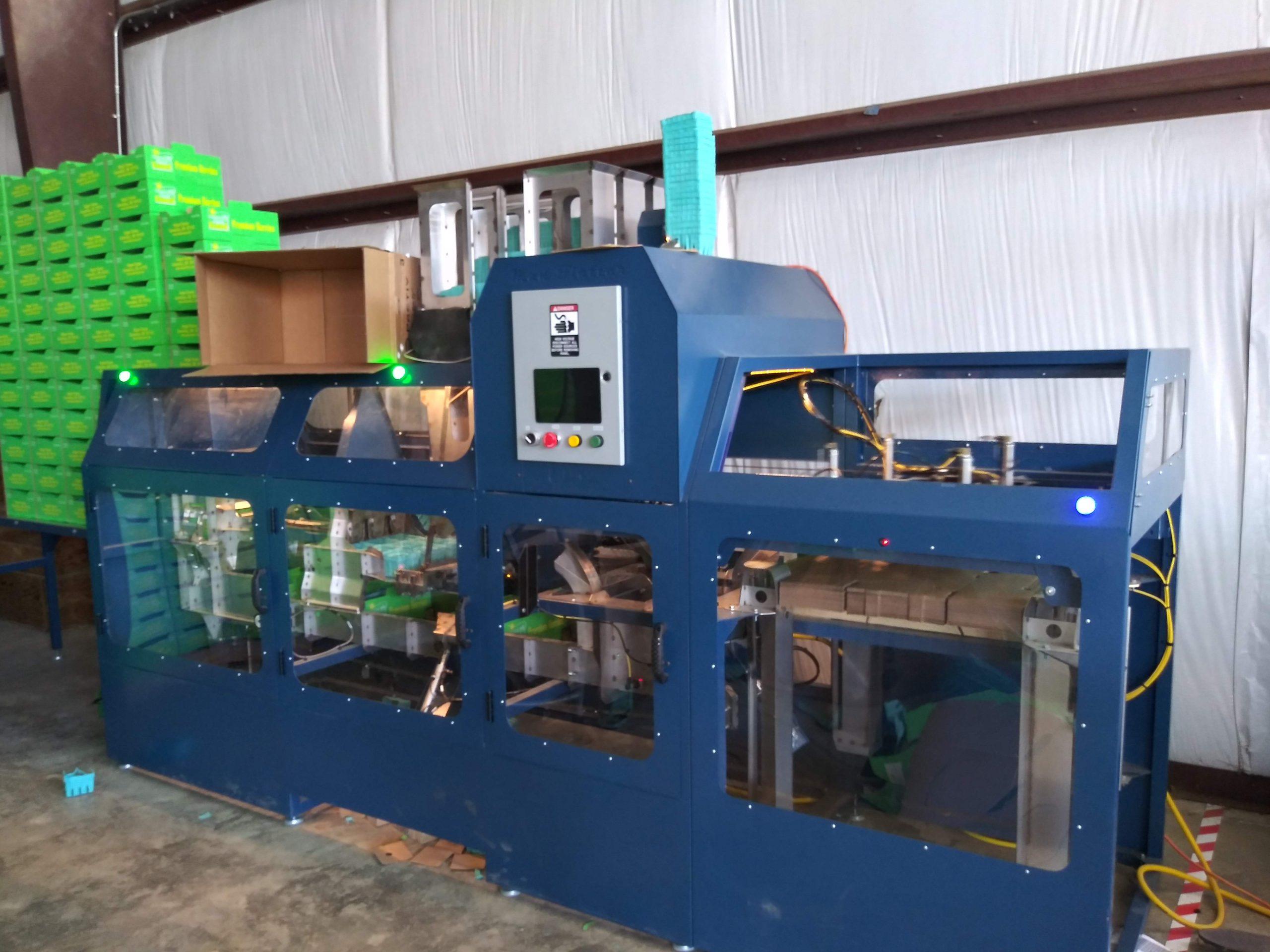


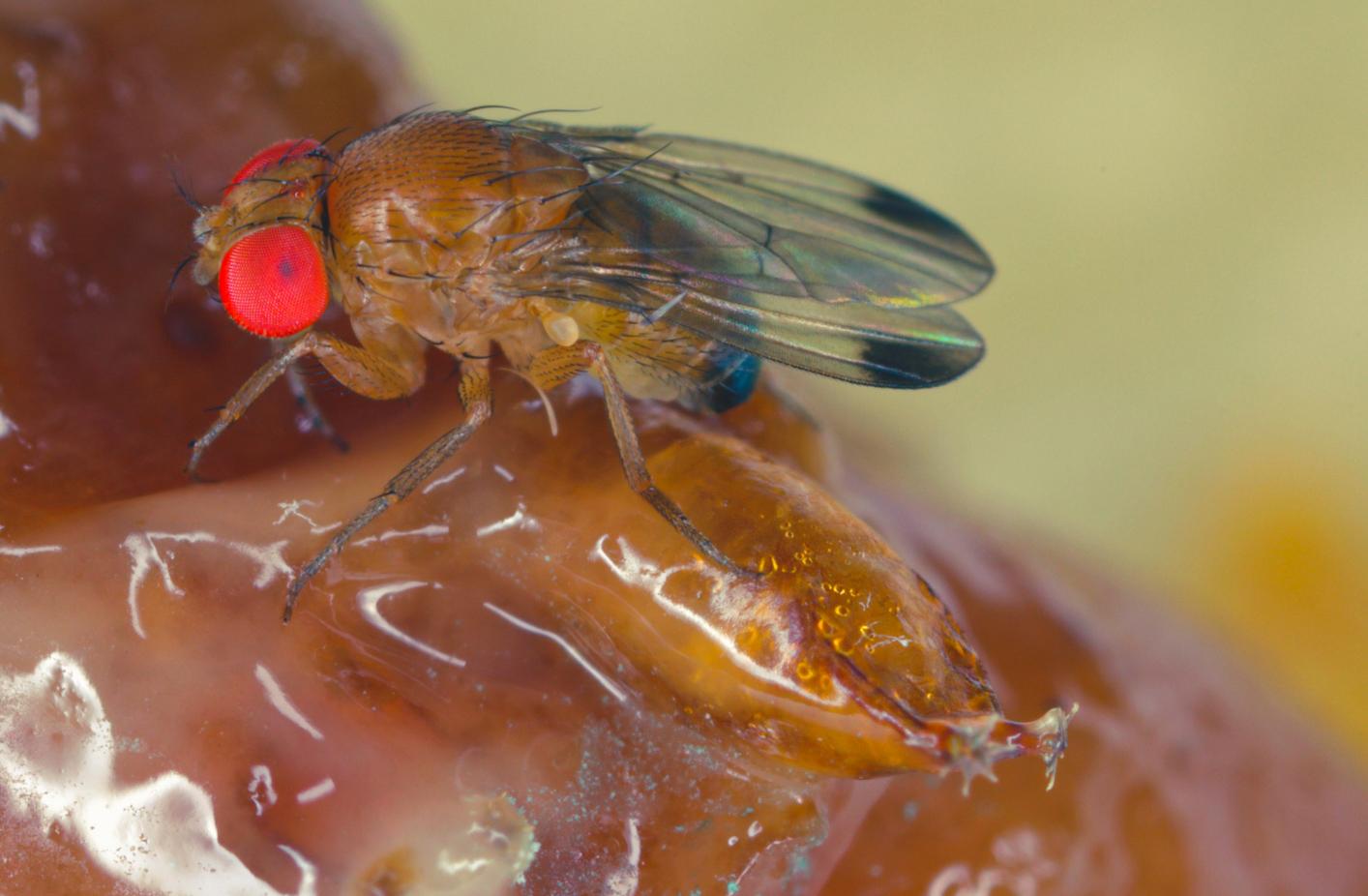

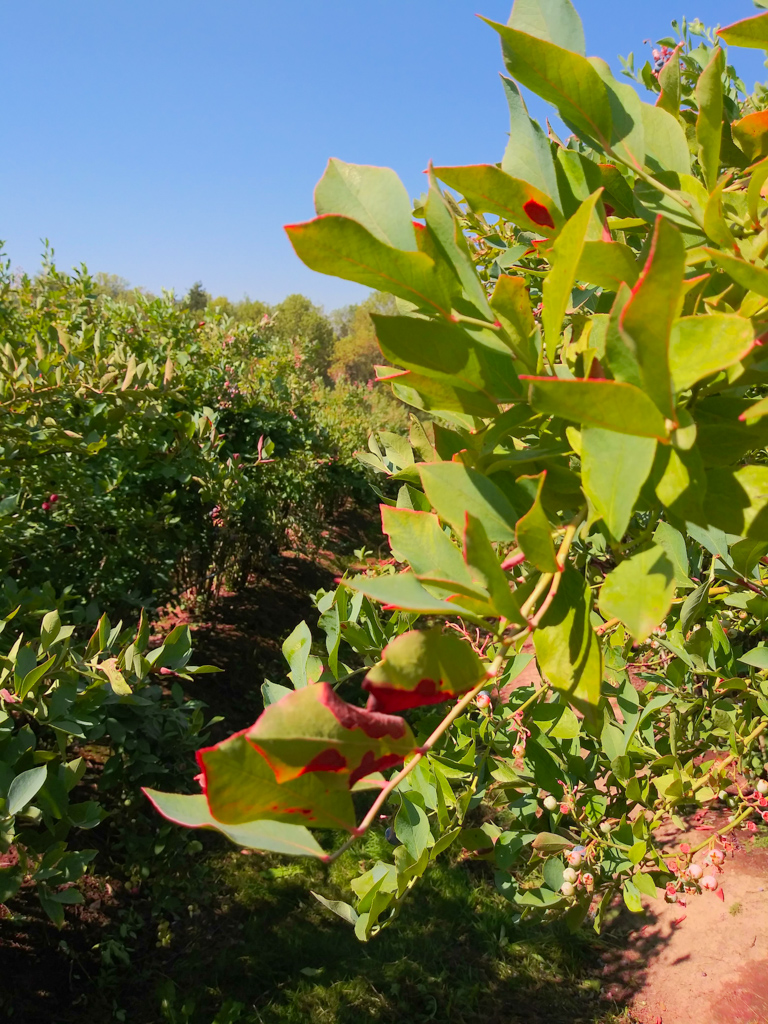
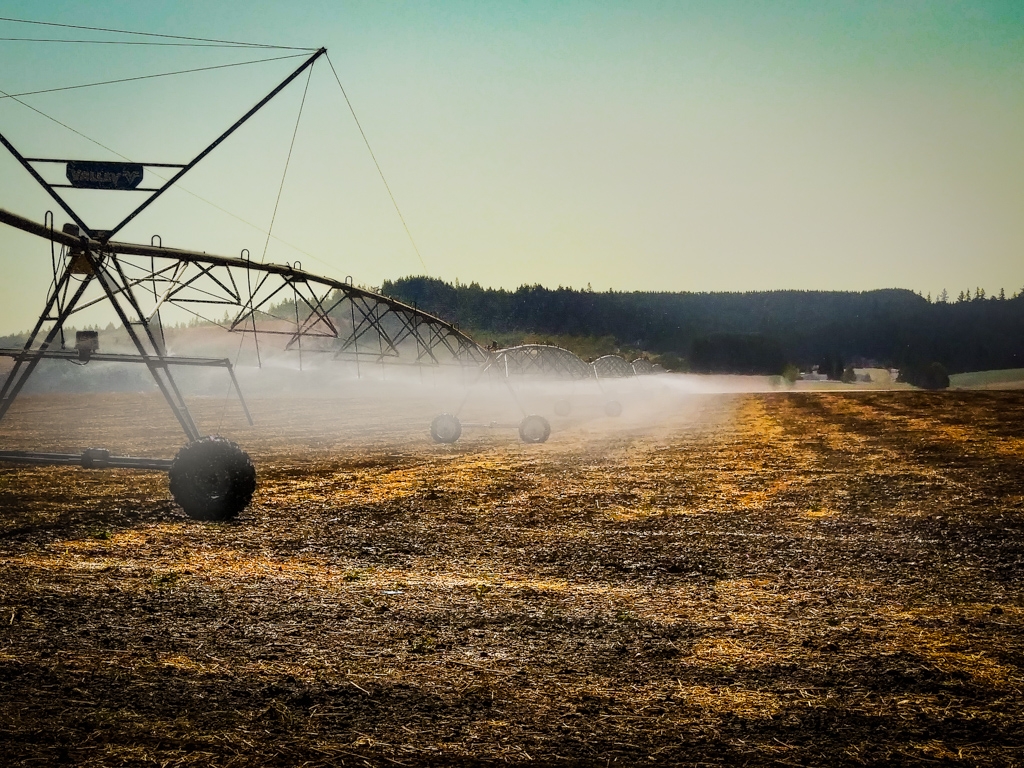


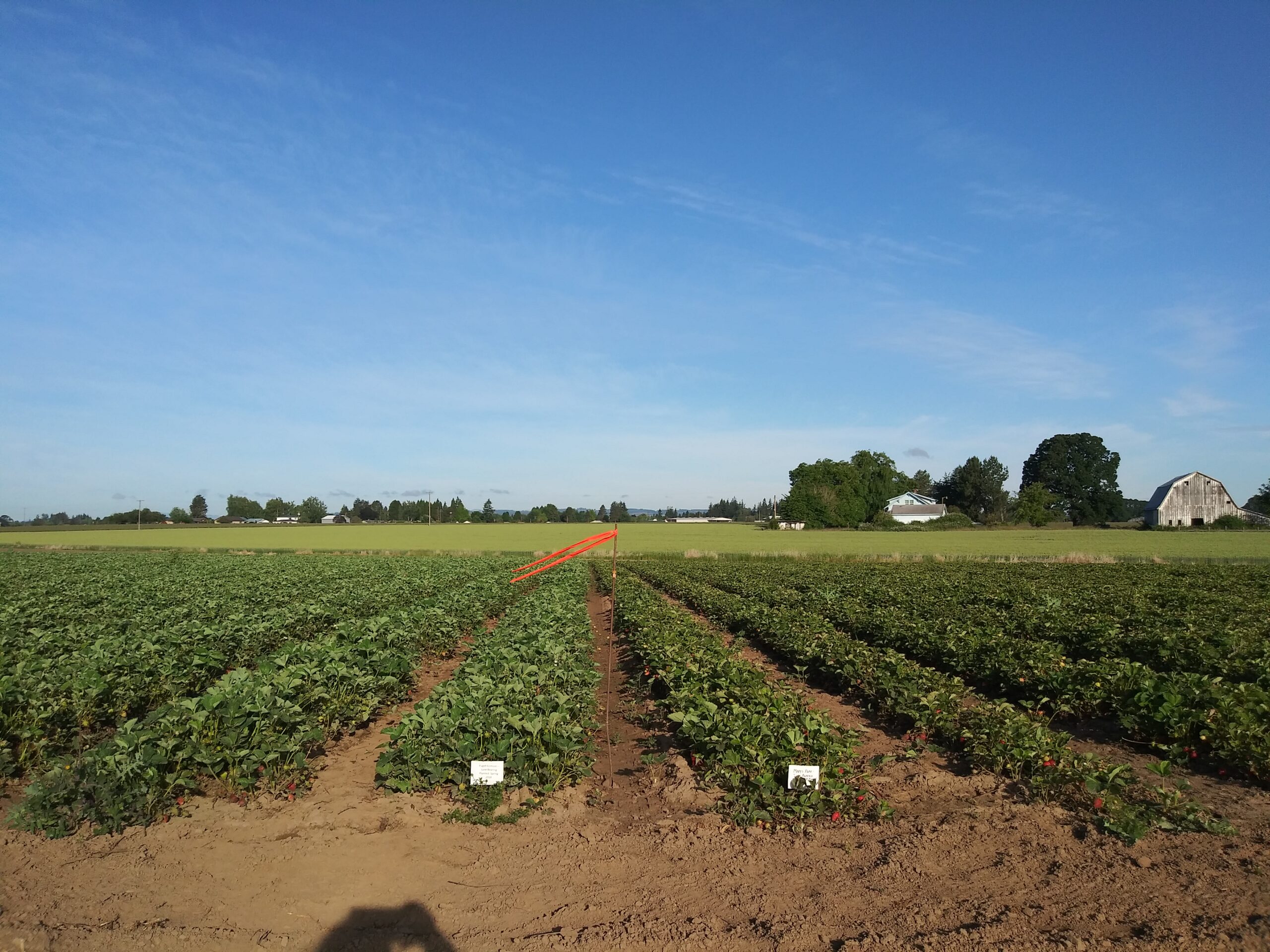







One Response
Folks- raspberries are easy to pollinate as the flowers provide a veritable lake of nectar and easily accessible, abundant and nutritious pollen. Different bee species are largely equivalent in setting fruits on a first or second visit, which is all a flower needs. I can provide pdf reprints of publications by my former student, Corey Androkopoulos, whose research is the basis of these conclusions.
Jim Cane